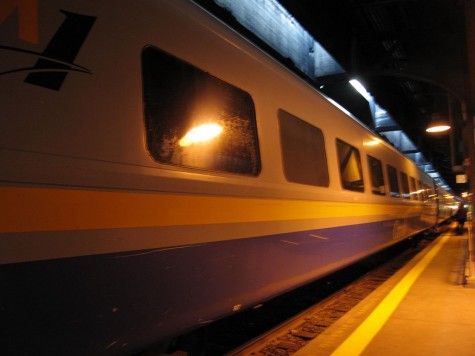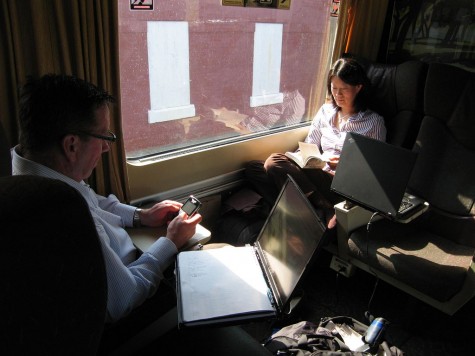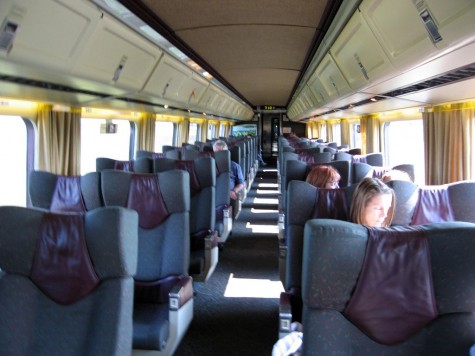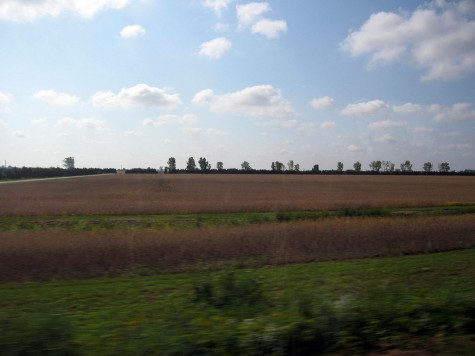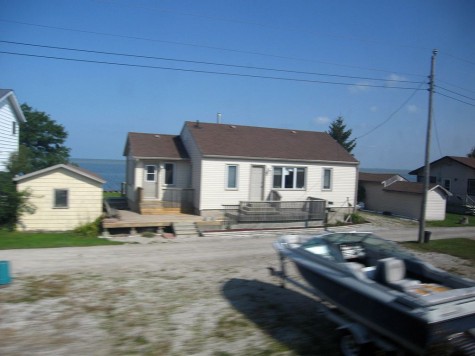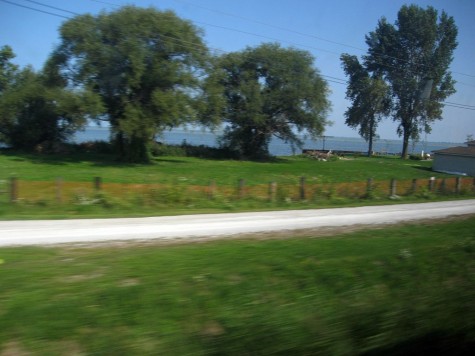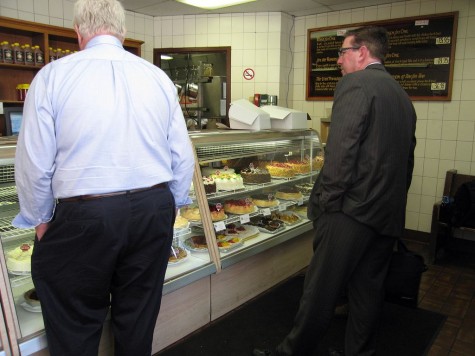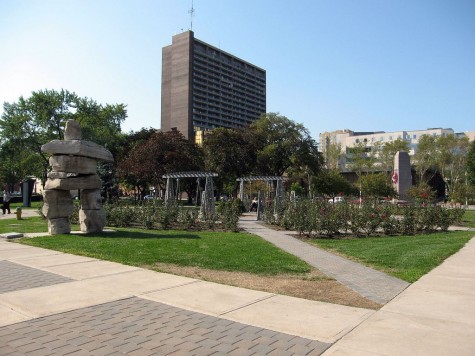With a schedule to pick up the train from Oshawa through Toronto to Windsor, Stephen got caught in a traffic at the shift change at the General Motors plant. Having missed the Via Rail train, he was told that he could catch the later GO Train from Oshawa to Windsor, and arrive at Union Station before the train left. The voyage outbound from Toronto was considerably less stressful.
I prefer travelling by train over flying. The stress is lower. It’s too bad rail travel isn’t a practical alternative to most destinations.
The rail route through southern Ontario sees a lot of farm land.
Highway 401 is normally considered the direct freeway from Toronto to Windsor. The original Highway 2 ran through small towns north of Highway 401. Approaching Windsor, Highway 2 lost its official designation in 1998.
In contrast to the flatland scenery of Highway 401, the last section westward of the railway tracks run with a view of Lake St. Clair.
About 4-1/2 hours after we had left Toronto, our train arrived at the Windsor Via Station. In an unplanned lack of coordination, it seems that local taxis don’t wait at the train station expecting passengers. We had to phone for one to come pick us up and drive us into town.
We were still early for our appointment. The receptionist suggested that Tunnel Bar-B-Q would be a good choice for lunch. The dining room was rather busy, so we were told that take-out would be faster. Stephen took note of the dessert options — the first signal that I would be travelling with an appreciator of sweets.
We had a rapid picnic lunch at a table on the Windsor City Hall plaza. Since lunch service took longer than we had expected, none of us could fully complete our meals before having to run to our appointment. The food was good … and would have been better appreciated with another 15 minutes!
The return departure on the train would have had us waiting many hours. A flight back was feasible, but still hours away. We decided to pick up a rental car to drive back to Toronto. Speaking with other consultants who frequent the Toronto – Windsor run, this seems to be a common pattern for transportation.

